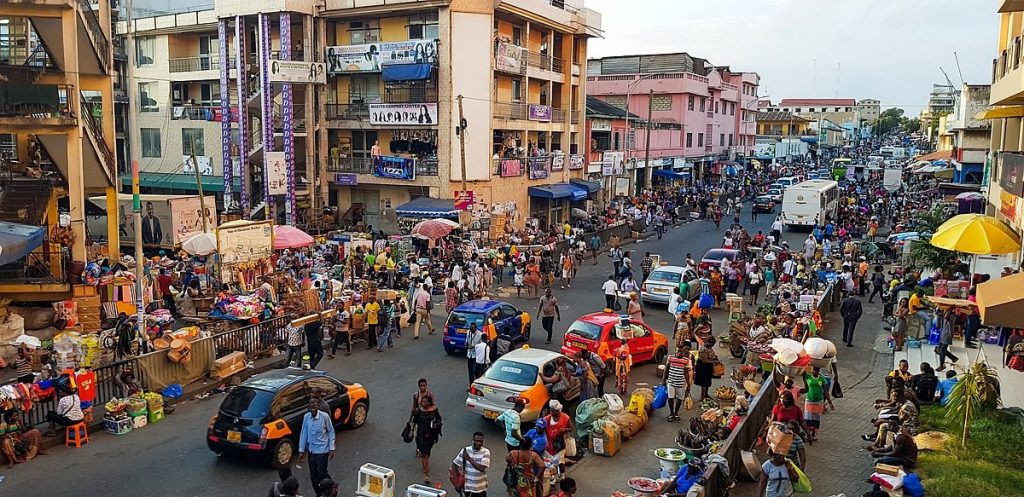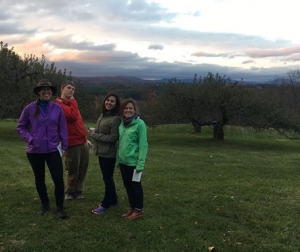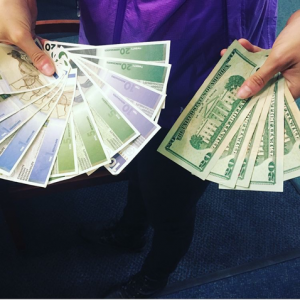Elijah Mensah, Environmental Policy & Planning M.S. Candidate
Hi Everyone, my name is Elijah. I am an international student pursuing an MS in Environmental Policy and Planning here at Tufts! I aspire to acquire knowledge and practice in the field to contribute to the policy and planning of cities. First, I would like to speak briefly about where I am from.
A country located on the west coast of Africa, formerly known as the Gold Coast during British colonial rule, and now Ghana after independence in 1957, is one of the best places to live in Africa! The country was called the Gold Coast because of its vast Gold reserves and other minerals. This played a crucial role in attracting European businessmen to the country until the slave trade became the next lucrative commodity. Fast forward to modern Ghana, we are known for being affable, welcoming, and peace-seeking people. Today some of our most significant trading commodities remain gold, bauxite, diamond, manganese, timber, petroleum, and cocoa.

I was born and have lived all my life in Accra, the capital of Ghana. Due to school and other engagements, I have had the opportunity to travel around the country. I completed my elementary education in rural Accra, Senior High education in the Volta region, and my undergraduate degree in the Ashanti region of Ghana. Growing up, I was puzzled by the environmental issues making headlines in the news and radio discussions. I was interested in how I could contribute to addressing the notorious littering, poor waste management, and flooding in my community. I witnessed firsthand human actions that lead to garbage and plastic waste clogging waterways and flooding during the wet season, which caused destruction of properties and sometimes claimed human lives.
Research studies in the country have attributed poor waste management to the outbreak of cholera and malaria diseases, which has dire impacts on public health. All of these influenced my decision to pursue a BS in Natural Resources Management. Later I teamed up with friends and colleagues who found the current waste management and climate change crisis a significant threat to our country. We worked together to cofound a community-based nonprofit called “Keep Ghana Beautiful.” Our mission was to educate community members and school children on the issues of poor waste management and climate change and encourage them to reduce, reuse and recycle waste and plant trees to mitigate the impacts of climate change.
Through my nonprofit organization, I was selected as a fellow for the Atlas Corps Program. It provided the opportunity for emerging nonprofit leaders around the world to come to the US to hone professional skills and develop hands-on learning in a national nonprofit for 12-18 months and then return to their home countries to utilize the skills. I was privileged to have been stationed at “Keep America Beautiful,” a US national nonprofit with over 65 years of experience in addressing the issue of littering and promoting recycling through its over 700 affiliates across the US and Canada. Throughout the role, I lived principally in Stamford, Connecticut and traveled briefly to 10 states across the US. My thoughts about going to grad school started sometime during the pandemic when I worked from home. I first started broadly researching via the internet in the field I wanted to develop and focus my skills. I then narrowed the search to MA or MS programs. I was fascinated by Tufts’ academic success stories and its location within the Boston Metropolitan area. I found the prospect of pursuing an excellent graduate program in one of the top-notch schools in the US an accomplishment to begin with living my American dream.
Upon returning to Ghana after my fellowship, I began an application to Tufts. After some months of waiting I was surprised with that sweet congratulatory email of admission to the MS in Environmental Policy and Planning. After the back-and-forth issues of immigration and securing a visa, here I am living the dream! I am currently taking four classes this semester and I feel great about it. I like the immersive learning culture where students engage weekly in small group discussions with instructors. I love the discussion forums on the course Canvas site where students share their weekly journaling to the class. These stimulate conversations among students to learn of other perspectives on a specific topic. I think it is creative and transformational. I can’t stop without talking about my department building- the Brown House. This is home where all of the bonding and fun happen. We use it to connect with colleagues, study, organize events, meet our professors and administrative offices for assistance. One of the best parts for me is always free sncks in the kitchen. I love the community!
I want to use this platform to thank and send a shout out to my mentor and professor Julian Agyeman, at the Department of Urban and Environmental Policy and Planning (UEP), Tufts. He has been phenomenal in guiding and supporting me throughout my journey. Also, I would like to motivate someone out there that it is possible when you put in the hard work and seek the support you require. I tried many times to further my education but got rejected. On the occasions I gained admission, something may have changed in my life and stopped me from proceeding. 10 years after completing my undergraduate degree, I accomplished a near forgotten dream. Don’t be surprised to see me completing a PhD in the future.
Thanks for taking the time to read my blog, stay tuned for more!



